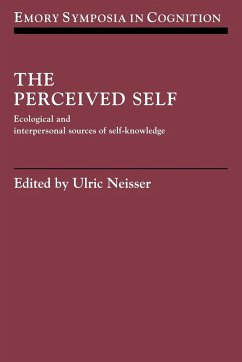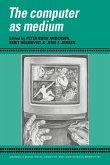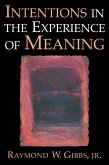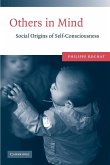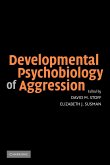An interesting theory of self, based on perception, is explored by a distinguished interdisciplinary group of scholars.
This book brings different ideas to bear on the classical problem of the self. Self-perception, both ecological and social, is the earliest and most fundamental form of self-knowledge. In his introduction, Ulric Neisser describes the 'ecological self' as based on direct and realistic perception of one's situation in the environment; the 'interpersonal self' as established by social interaction with other people. He argues that both of these 'selves' appear in early infancy, long before anything like a self-concept or a self-narrative is possible. In subsequent chapters, fifteen contributors - psychologists, philosophers and others - elaborate on these notions and introduce related ideas of their own. Their topics range from the perceptual and social development of infants to autism and blindness; from mechanisms of motor control to dance and non-verbal communication. The combined contributions of these leading individuals creates an unusual synthesis of perceptual, social and developmental theory.
Table of contents:
Preface; List of contributors; Part I. Introduction: 1. The self perceived Ulric Neisser; Part II. The Concept of an Ecological Self: 2. Ontogenesis of the perceived self Eleanor J. Gibson; 3. Body-environment coupling David N. Lee; 4. A theory of representation-driven actions Marc Jeannerod; 5. The ecological self in historical context Franklin C. Shontz; 6. Good intentions and dancing moments: Agency, freedom and self-knowledge in dance Sondra Horton Fraleigh; 7. The primacy of the ecological self Marjorie Grene; Part III. The Interpersonal Self and Its Implications: 8. The self born in intersubjectivity: the psychology of an infant communicating Colwyn Trevarthen; 9. On the interpersonal origins of self-concept Michael Tomasello; 10. Infant's knowledge of self, other, and relationship Sandra Pipp; 11. The role of feelings for an interpersonal self Daniel N. Stern; 12. Spontaneous communication and foundation of the interpersonal self Ross Buck; 13. Autism, affordances and the self Katherine A. Loveland; 14. Through feeling and sight to self and symbol R. Peter Hobson; 15. G. H. Mead and Martin Buber on the interpersonal self James M. Gustafson; 16. Cognitive science, other minds, and the philosophy of dialogue and the egocentric predicament David Jopling; Author index; Subject index.
Hinweis: Dieser Artikel kann nur an eine deutsche Lieferadresse ausgeliefert werden.
This book brings different ideas to bear on the classical problem of the self. Self-perception, both ecological and social, is the earliest and most fundamental form of self-knowledge. In his introduction, Ulric Neisser describes the 'ecological self' as based on direct and realistic perception of one's situation in the environment; the 'interpersonal self' as established by social interaction with other people. He argues that both of these 'selves' appear in early infancy, long before anything like a self-concept or a self-narrative is possible. In subsequent chapters, fifteen contributors - psychologists, philosophers and others - elaborate on these notions and introduce related ideas of their own. Their topics range from the perceptual and social development of infants to autism and blindness; from mechanisms of motor control to dance and non-verbal communication. The combined contributions of these leading individuals creates an unusual synthesis of perceptual, social and developmental theory.
Table of contents:
Preface; List of contributors; Part I. Introduction: 1. The self perceived Ulric Neisser; Part II. The Concept of an Ecological Self: 2. Ontogenesis of the perceived self Eleanor J. Gibson; 3. Body-environment coupling David N. Lee; 4. A theory of representation-driven actions Marc Jeannerod; 5. The ecological self in historical context Franklin C. Shontz; 6. Good intentions and dancing moments: Agency, freedom and self-knowledge in dance Sondra Horton Fraleigh; 7. The primacy of the ecological self Marjorie Grene; Part III. The Interpersonal Self and Its Implications: 8. The self born in intersubjectivity: the psychology of an infant communicating Colwyn Trevarthen; 9. On the interpersonal origins of self-concept Michael Tomasello; 10. Infant's knowledge of self, other, and relationship Sandra Pipp; 11. The role of feelings for an interpersonal self Daniel N. Stern; 12. Spontaneous communication and foundation of the interpersonal self Ross Buck; 13. Autism, affordances and the self Katherine A. Loveland; 14. Through feeling and sight to self and symbol R. Peter Hobson; 15. G. H. Mead and Martin Buber on the interpersonal self James M. Gustafson; 16. Cognitive science, other minds, and the philosophy of dialogue and the egocentric predicament David Jopling; Author index; Subject index.
Hinweis: Dieser Artikel kann nur an eine deutsche Lieferadresse ausgeliefert werden.

